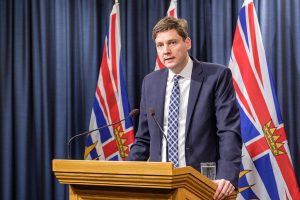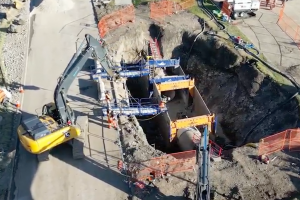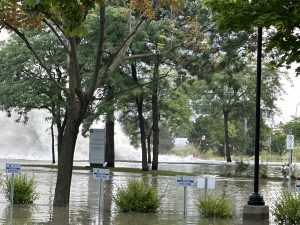VICTORIA — As the ripples of the COVID-19 pandemic continue to impact B.C., the province’s residents, business groups and other stakeholders flooded officials with their thoughts on the next budget.
The input resulted in the Select Standing Committee on Finance and Government Services’ report that gives the province 124 recommendations.
“This year, we saw the highest level of participation in nearly 10 years with British Columbians describing how the COVID-19 pandemic exposed gaps in supports and services and impacted groups differently,” said committee chair Bob D’Eith in a statement. “The committee recognizes that the next budget is an opportunity to address these gaps and inequities and to continue to make progress on reconciliation, diversity, inclusion and accessibility.”
The committee heard 281 presentations, received 1,362 written and video submissions and 3,625 responses to an online survey.
Among the recommendations were many that could impact the construction industry.
They are as follows:
- Examine implementing prompt payment legislation. This recommendation was the result of urging from the BC Construction Association and the Electrical Contractors Association of British Columbia.
- Invest in upgrading existing post-secondary infrastructure, including encouraging and leveraging opportunities to expand satellite campuses in rural, remote and underserved communities.
- Invest in a broad base of public infrastructure that facilitates equitable recovery, such as roadbuilding and public transit, as well as a diverse range of smaller projects in local communities, parks and schools. – Ensure the safety of facilities for students and staff by sustaining capital investments in schools and providing flexibility of funding for new builds, seismic upgrades and maintenance, and leveraging opportunities for modernizing facilities.
- Accelerate the building of a continuum of supportive and affordable housing across the province, including transitional housing for women facing violence, gender-specific supportive housing and expanded housing options for people with disabilities, youth at risk of or experiencing homelessness, and low-income seniors.
- Explore ways to support local governments to approve new housing construction projects and accelerate housing supply by streamlining development processes and implementing the recommendations from the BC Ministry of Municipal Affairs and Housing’s 2019 Development Approvals Process Review.
- Increase funding for the British Columbia Air Access program to improve airport infrastructure and address challenges stemming from the impact of the COVID-19 pandemic, particularly in small, rural and remote communities.
- Continue to use a “climate lens” for all infrastructure spending to provide an objective and transparent assessment of a project’s compatibility with the CleanBC plan and B.C.’s legislated greenhouse gas emission reduction targets.
- Strengthen public construction policies to require new public construction projects to meaningfully meet accessibility best practices and standards.
- Pursue municipal finance reform to provide municipalities with a broader range of sustainable, predictable and reliable funding tools in order to address increasing financial pressures related to a growing asset base, aging infrastructure, climate change, housing challenges and the opioid crisis.
- Fully fund the provincial active transportation strategy, including ensuring an active transportation lens is applied to the development of transportation infrastructure.
- Continue to explore market and product diversification in forestry by supporting economic incentives to drive investments into high-value products from the forest resource and providing ongoing support for Forest Innovation Investment.
- Continue to explore opportunities for clean energy solutions, such as hydrogen, geothermal, solar and biofuels, including attracting private investment and technology and ensuring competitiveness, collaborating with Indigenous communities and other governments, creating partnerships with industry and universities on commercialization, incenting rural investment and creating a stable policy framework.
- Review opportunities to temporarily adjust the employer health tax considering the impact of the COVID-19 pandemic on businesses.











Recent Comments
comments for this post are closed